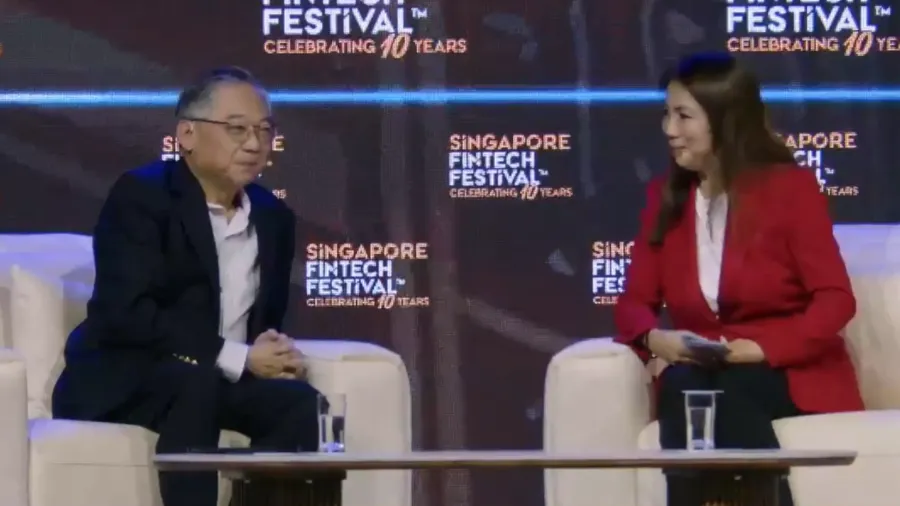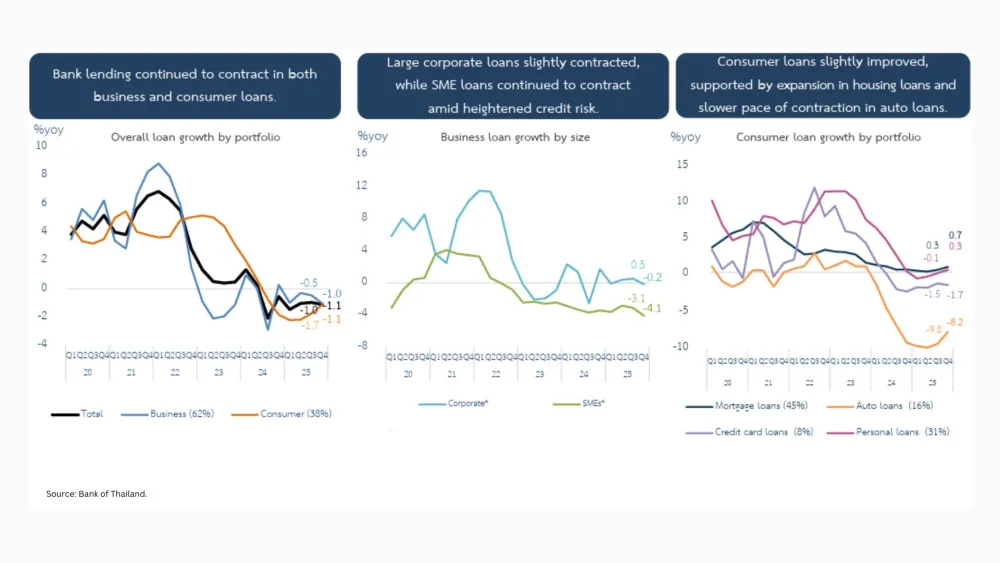
Five takeaways from day 1 of the Singapore Fintech Festival
Tokenisation emerges as a key driver of future digital money systems.
Businesses, fintechs, and regulators are urged to align their strategies, ensuring that the benefits of these transformative technologies are fully realised whilst safeguarding trust and security in the global financial system, as revealed on Day 1 of the Singapore Fintech Festival 2025 (SFF) on 12 November.
From artificial intelligence (AI)-driven solutions that enhance financial inclusion to tokenisation’s promise to reshape the future of digital money, the festival highlighted the growing intersection between technology and finance.
Here's a closer look at five important takeaways from the event:
Regulators need to keep pace with banks' digital transformation
One of the most striking themes from the SFF 2025 was the call for regulators to better align with the rapidly advancing digital transformation in the banking sector.
According to the Global Financial Technology Network (GFTN), regulators in Asia must accelerate their efforts to keep up with the digital innovations and regulatory complexities introduced by new technologies such as AI, blockchain, and decentralised finance (DeFi).
“I think the key innovation for digital finance is a safe space to experiment under supervision and if needed, with intervention by the regulator,” Dr. Axel Weber, International Advisory Board Member, GFTN & President, Centre for Financial Studies, GFTN said at SFF 2025.
As fintechs push the boundaries of what’s possible, traditional banks are increasingly investing in digital platforms, automation, and machine learning to enhance customer experiences and streamline operations.
However, regulatory frameworks in many parts of Asia have struggled to keep up with these advancements.
The SFF highlighted the importance of dynamic regulatory approaches that can adapt to the pace of technological change, ensuring both innovation and consumer protection are balanced effectively.
Another development is how neobanks and traditional lenders are moving beyond app-based services to ‘invisible finance’, where payments, credit, and savings functions are integrated directly into consumer devices and everyday platforms.
The shift—often described as Banking-as-a-Service (BaaS) 2.0—positions banking infrastructure to operate in the background of digital ecosystems.
ClearBank UK CEO Emma Hagan said neobanks depend on fast, resilient systems to stay competitive. “As soon as payments slow, the customer experience suffers—and that makes it hard to compete,”
Alignment between banks, fintechs, and regulators is crucial for AI growth
United Overseas Bank Deputy Chairman and CEO Wee Ee Cheong stressed the importance of creating a collaborative framework between banks, fintechs, and regulators when it comes to AI integration in finance.
“Speed without security is fragile. Only trust will build relationships that lasts,” he said at SFF 2025.
The current landscape is fraught with scepticism around AI-driven technologies, especially concerning trust, security, and transparency.
A key takeaway from this discussion was that for AI to be fully embraced across the banking and finance sectors, it is essential that standards are agreed upon to govern its usage.
From ensuring AI’s ethical application to addressing concerns over data privacy and model bias, the festival made it clear that these issues are front and centre in the industry’s push toward more intelligent financial systems.
Additionally, with the rapid rise of generative AI tools, ensuring AI’s reliability and transparency is crucial to establishing trust with consumers and regulators alike.
Furthermore, creating a regulatory framework that aligns the interests of banks, fintechs, and regulators will be pivotal in building a sustainable future for AI in finance.
The collaborative approach urged by UOB's CEO reflects an industry-wide recognition of the importance of cross-sectoral dialogue to pave the way for AI’s potential in reshaping financial services.
Singapore’s digital economy strategy is expanding globally
Another significant insight from SFF 2025 was Singapore’s aggressive pursuit of digital economy partnerships within ASEAN and global blocs.
Deputy Prime Minister and Minister for Trade and Industry Gan Kim Yong said Singapore is exploring cooperation between ASEAN and major blocs such as the EU, Comprehensive and Progressive Agreement for Trans-Pacific Partnership (CPTPP), and Gulf Cooperation Council (GCC), including a possible digital economy agreement between the EU and ASEAN.
“A future ASEAN-EU digital economy agreement could be a major breakthrough, though it will take time,” he said at SFF 2025.
A major takeaway from the event was the growing importance of digital trade agreements and cross-border regulatory cooperation.
In the spirit of collaboration, the Monetary Authority of Singapore (MAS) and the UK’s Financial Conduct Authority (FCA) have officially launched a first-ever artificial intelligence in finance collaboration.
The partnership, announced at the Singapore FinTech Festival 2025, held on the Festival Stage on 12 November by Kenneth Gay, Chief FinTech Officer at MAS, and Jessica Rusu, Chief Data, Information and Intelligence Officer of the FCA, aims to enhance cross-border opportunities for financial institutions and AI firms.
AI’s role in financial inclusion is expanding
A recurring theme across several discussions at SFF 2025 was AI’s growing role in enhancing financial inclusion.
One notable example was Sumitomo Mitsui Banking Corporation’s (SMBC) initiative to roll out AI-powered tools to assist CFOs in streamlining financial operations and promoting financial inclusion, particularly in underserved regions.
By automating financial processes and providing data-driven insights, AI is helping businesses and individuals in emerging markets access more personalised and efficient financial services.
Also, executives from Mastercard, DBS, Swift, Ant International, and Sumitomo Mitsui Banking Corporation (SMBC) highlighted that AI-driven cyberattacks, deepfakes, data breaches, and algorithm failures—not financial losses—are the biggest threats, potentially undermining trust and institutional stability.
In particular, AI's application in fraud detection, liquidity management, and financial planning is opening up new opportunities for smaller businesses and individuals to engage with the global financial system.
Tokenisation is poised to shape the future of digital money
A highly anticipated session at the festival focused on tokenisation as the next frontier in digital money.
Finance leaders say there is still a lack of interoperability between traditional financial infrastructure and emerging digital money systems, and stablecoins might just be the solution.
“The buzz has always been around stablecoins,” said Naveen Mallela, Global Co-head of Kinexys at J.P. Morgan, “but stablecoins are just one of the options that you have,"
The rise of stablecoins, deposit tokens, and tokenised assets has transformed the definition of “money,” forcing banks, payment networks, and regulators to rethink liquidity, interoperability, and compliance frameworks.
For Mishal Ruparel, Chief Commercial Officer at Banking Circle, the next phase of digital money is about interoperability — the ability to move value instantly across networks and borders.
Ruparel said that clients increasingly ask how digital assets like stablecoins and tokenised deposits can “provide real-time payments in an instant, 24/7, with absolute clarity,"
As tokenisation continues to evolve, its potential to create a more liquid, efficient, and transparent financial ecosystem cannot be overstated. It is set to play a key role in the future of digital money, enabling seamless transactions that could revolutionise the way assets are transferred and traded on a global scale.



















 Advertise
Advertise













